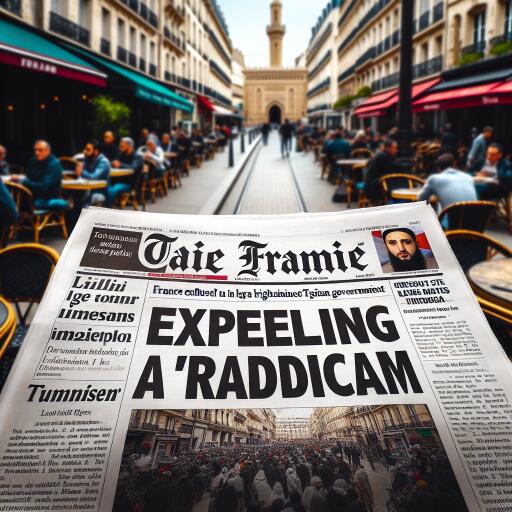France Takes Firm Action Against Tunisian Cleric for Radical Remarks
In a decisive move reflecting its tough stance on issues related to national security and public discourse, the French government has reported the expulsion of a Tunisian cleric due to allegations of radicalism and making inflammatory statements. Interior Minister Gerald Darmanin highlighted the government’s prompt action in addressing this matter.
According to official statements, Imam Mahjoub Mahjoubi found himself facing expulsion after less than a day following his arrest. This rapid development underscores the French government’s commitment to maintaining a stringent policy against individuals whose actions or words are perceived to compromise the nation’s values and societal harmony.
Darmanin’s announcement revealed that the catalyst for this expulsion was the cleric’s derogatory remarks concerning the French tricolour, which he allegedly described in highly offensive terms. This incident not only caught the eye of the government but also sparked widespread controversy across various social media platforms and caught the attention of the national press.
“We will not let people get away with anything,” Darmanin firmly stated, underscoring the government’s stance on safeguarding the Republic’s principles against any form of radical or intolerant interpretation that challenges the country’s core values, promotes discrimination, or feeds into extremist ideologies.
Mahjoubi, who served in the southern French mosque of Ettaouba in Bagnols-sur-Ceze, defended himself against these accusations. He argued that his comments were misunderstood and insisted that he never intended any disrespect to the French national symbol, which embodies liberty, equality, and fraternity through its blue, white, and red hues.
Despite his defense, excerpts from the expulsion order made public highlighted concerns over Mahjoubi’s preaching, accusing him of espousing a rigid and intolerant version of Islam. Authorities believe such a narrative could potentially fuel divisive behavior, gender discrimination, communal tensions, and even encourage radical jihadist ideologies.
Details surrounding Mahjoubi’s detention and subsequent expulsion remained somewhat vague, with reports indicating that he was initially held in administrative detention somewhere within the Paris area before being put on a flight to Tunis.
This swift action was facilitated by France’s recent overhaul of its immigration laws, which has streamlined the process for responding to cases deemed to impinge upon national security and the societal values of the Republic. The backdrop to these legislative changes includes a heightened political discourse on immigration and identity, amplified by the rising influence of far-right ideologies in the lead-up to key European elections.
The French government’s decisive expulsion of Imam Mahjoubi sends a clear message of its unwavering commitment to combating radicalism and preserving the ideals of the Republic against any form of extreme or divisive rhetoric.









